File: 1481823998943.gif (12.65 KB, 240x80, 3:1, 1466908692483.gif) ImgOps iqdb

Here's some useful links to get you started.
-https://docs.google.com/document/d/1pKgBm8Aa58mjB1hYhbK-VOPZsRBTXBuPBzw8Xikm2ss/pub?embedded=true (A basic walkthrough of what to do first and what to expect)
-http://realkana.com/ (tool to learn the kana)
-http://www.guidetojapanese.org/learn/grammar (grammar guide)
-http://pastebin.com/kXqhRbWi (setting up Anki)
-http://jisho.org/ (Japanese-English dictionary)
-http://dictionary.goo.ne.jp/ - (Actual Japanese dictionary for rare words and alternate definitions)
-https://addons.mozilla.org/en-US/firefox/addon/rikaichan/ (Popup dictionary definitions when you hover over a word, Chrome version is called Rikaikun)
http://rikaisama.sourceforge.net/ (alternative to rikaichan)
Last thread: >>16145
みんなさん、がんばって!
File: 1481830075981.png (133.41 KB, 614x226, 307:113, よつばとお土産.png) ImgOps iqdb

Please help me translate what Yotsuba says in that panel.
これはと-ちゃんにあげよう
Wanted to give this to (you) dad
と
when
おもってかえったんだった
I went back home
Is that what the sentence mean ?
That's almost exactly what she's saying. Only the と おもってかえったんだった means "brought it home with me" (in order to give to you). 以て(もって) followed by 帰る. It means she brought something back with her, in this sentence in particular, the candy or whatever that thing is.
Keep pushing wiz, you're doing great.
Also, the と in this case is not when, it's more like and. I wanted to give this to you and/so I brought it home with me.
Are there any tips on how to differentiate particles and actual words in longer sentences? Furthermore, are there any Manga or VNs that are easy in differentiating particles and actual words?
Also, how long did it take everyone else to begin reading comfortably? I'm starting to lose faith as I cannot read long sentences.
File: 1481858947904.jpg (190.34 KB, 541x898, 541:898, 0137.jpg) ImgOps iqdb

File: 1481887726766.jpg (1.06 MB, 486x7777, 486:7777, nihongoichiban list of par….jpg) ImgOps iqdb

Two things. Know every particle. Second, keep reading. As your vocabulary improves, differentiating words gets easier. I'm a beginner myself btw, 12 months in, studying consistently every day and it widely depends on what I'm reading. Yotsuba level stuff is comfortable enough and I don't need to go to the dictionary every 5 pages. Recently trying to read Dungeon Meshi. It's much harder and I'll occasionally have to settle sentences with overall meaning rather than actually knowing exactly what's been said.
I'm sure you noticed yourself how sometimes you'll leave a sentence behind and then you come back to it a few days later and it makes much more sense. As long as you continue to struggle and exposing yourself to these longer sentences, you'll improve.
>>19706
あす sounds more formal than あした.
I did this when I first started out and was reading my first native material. I think it did help a bit. I had stopped though by the time I picked up the next manga I read untranslated (or maybe I stopped a ways into the first one, can't quite remember)
I think it's good for your first endeavor or two to keep it from being too overwhelming but is probably going to hurt you more than using a dictionary after getting your bearings.
>>19787
I'm still new, so I use translations (as little as possible mind you) to discern what certain long sentences mean if I don't fully understand.
If say you get the word "Movement" but you say "to move" do you accept it as right or wrong?
Rather strict, I have enough words in my decks to warrant knowing the nuance differences between synonyms.
It takes longer though, but I feel that it's worth it.
I'm trying to be more consistent with my schedule. It's a mess right now.
When I was still intensively focusing on it, I did anki at the exact same time every day for 2-3 hours, then 3-4 hours of reading.
I still keep a strict habit since it's easier, but I've cut down anki to an hour a day, and I only read stuff for fun now.
I guess the only thing I do that would count as actual studying is Anki, and it only takes about 20-25 minutes a day.
I'm at the stage where I can read a lot of VNs for fun more than as a study method (although I can't just pick up super complex reading material just yet and just dive in, would involve a lot of dictionary lookups likely), and I usually just read for as long as I feel like. Sometimes if the story is interesting it'll be all night and sometimes only for like 25 minutes. But I do try to read every day.
I've been reading the Tae Kim guide for 2 weeks,and I'm getting bored of it,I'm at the "desire and suggestions" part…I really want to start reading some interesting shit but everyone says I should read the entire guide first…and at this rate I will get bored and I will call it quits…
There's something dumb easy to read while I keep reading the guide? or I should just finish the guide and start reading? Any recommendations?
Also what do you do to do your anki reps everyday? I think I have a psychological problem and I lose focus very easily,I can't read the guide or do my anki reps for more than 20 minutes because I get distracted and start doing something else.
What I can do to overcome this? Any advice?
I suggest you focus on vocabulary more than grammar for the first few months. When you have little idea how words "look like" in Japanese it's very hard to memorize how they relate with eachother. Since grammar is a thing applied to words, it's good practice to have a bunch of words under your belt so the rules make sense.
To build vocabulary you can use Anki. It's OK to do a short streth of 20 min and a short pause afterwards. Do 3 of those and you studied a full hour. Try to increase to 30 min stretches. The important thing is to be consistent about it and to study daily.
I don't think you have a psychological problem,keep pushing yourself and your brain will get use to it.
File: 1482859302859.jpg (388.16 KB, 1080x1920, 9:16, tmp_8469-Screenshot_201612….jpg) ImgOps iqdb
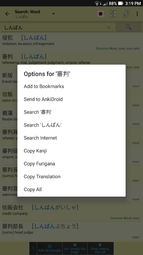
Yeah I use this in junction with googles handwriting/photorecognition for words I don't know.
I really prefer akebi but at this point it doesn't seem like it will ever get proper anki support.
File: 1482959493393.jpg (90.34 KB, 806x628, 403:314, 2016-12-17 00_24_09-沙耶の唄.jpg) ImgOps iqdb
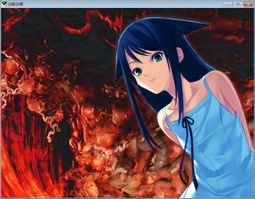
Now I've been reading Daitoshokan no Hitsujikai for a few days, which is easy so far (mined 16 words in 4 hours today).
Someone in the last thread (>>17665) said they had 20K words and 2600 kanji, and hadn't come across a new kanji in over a month. I have 2745 kanji at only 12K words, and I find several new kanji every day. I'm not complaining (learning new kanji takes zero effort at this point), just wondering why our experiences differ so much.
You have a vocabulary of 12000 words and it took you nearly 50 hours to read Saya no Uta?
Yes? The median time for native speakers on EGS is 6 hours, so about 8x slower. I always make sure I fully understand every sentence, and even in English I read at a generally relaxed pace. More than its vocab (although that was above average too), Saya was harder than the previous games I've read because the sentences were more grammatically complex.
At a high intermediate level you really should be faster than 1/8 of a natives reading speed. I'd go nuts reading that slowly personally and i'm only on my second vn
File: 1482964132920.jpg (200.4 KB, 1296x758, 648:379, 2016-12-26 21_29_06-大図書館の羊….jpg) ImgOps iqdb

I'd consider myself low intermediate since I haven't read enough. I could probably go twice as fast if I pushed myself and didn't stop to puzzle out difficult sentences, but slowness doesn't bother me.
I don't really use Anki, but did you mine anything specific to get 2.7k kanji with 4 VNs? Past the 2100 mark/jouyou, there seem to be tons of obscure kanji that are used for subtle differences in meaning, stylistic reasons, super specific situations, or they're just old as fuck. Can't really see myself learning all of those before the 4 year mark.
If I were to guess, I'm probably somewhere around the 1700-1800 range after 1.8 years, read around 11-12 VNs and some other stuff at a pretty slow pace.
https://tlwiki.org/?title=VN/Eroge_Script_sizes
According to this, it's standard for a single VN to have 2000+ kanji. Most of the ones outside the jouyou are indeed rare or only used in one word. But picking them up is no problem. At some point (maybe after about 2000), learning a word with new kanji becomes no more difficult than learning any other word. The kana-only words are the ones that give me trouble.
I'm sure it's just a matter of time now. I'm way past the point of giving up on it, having put close to 2k hours put into this language. By the end of this year I would like to be reading literature instead of manga only. We'll see. Long sentences still give me a hard time, even if I know all the words in it, my lack of interest in grammar is really taking a toll, it's the main problem I will have to solve one way or another.
By the end of 2017 I am going to make sure I'll be able to read and fully understand "adult" literature. When I say fully understand, I mean the grammar portion, not the vocabulary side.
I hope all of you wizards achieve what you want in 2017 as well.
Have any of you done something like that?
If you don't want to commit to dropping anki you could try taking a months break from learning new cards and seeing how you get on.
If Anki isn't effective for you, feel free to find another method that is. For me, it works well for me so I use it and plan to read real material as well.
I actually quit/took a break from Anki for like 2 months because of depression and only started doing it again from scratch(core 2k/6k) less than a week ago.
It's possible in that you can do it, but it's iffy if it'll actually be effective.
Children in general are clean slates and are literal information sponges. As an adult, your brain has already been fully developed so you have to find the right method for your current self.
You can try it though. Find some Japanese TV stream online and leave it on the background while you do other stuff. I tried to do this for some time once but not long or consistent enough to really say anything about it.
In any case, I think what you're seeking is for a method to learn Japanese by immersion.
This is exactly what I had planned on doing. In theory it should allow you to understand and speak a good chunk of the language within 4 years like you probably did with your mother tongue, if not in less time due to the adult brain being larger. Children's (and even young adult's) novels and manga have Hiragana alongside the Kanji which makes dictionary look-up possible. Once you learn Hiragana, you can read easy books and learn the grammar structures by noticing patterns.
Watching children's TV may help, but I feel that television for young audiences will be performed in a manner too different from how Japanese adults speak. The program might use such a limited vocabulary or have actors speaking so slowly that you'll still have to work on conditioning yourself to follow regular speaking speeds. I'm sure it would be fun watching the programs though.
yeah, i know it won't work… i have tried learning languages so much, but my problem is that i don't read or watch any media in other languages anyway. after a month or so the interest fades and i stop. if i still wanted to try it though, i'd probably compile 30 days worth of media and just queue it all to play, but i don't think i even have enough storage space if i don't use online streams which you suggest. i feel like if i can just intensively learn japanese within a few weeks, enough to casually read storybooks on my own, that my interest won't fade. before i always focused on also writing, or typing, and everything just got too hard. i would probably only use audio and visuals, the text/written aspect i think accelerates my disinterest in the beginning.
I don't really have any advice for you in the motivation department as I also suffer there, with losing interest and all that. It doesn't help that I'm a poorfag and depressed all the time to even enjoy anything. But you know, I've been in this way too long, watching anime since I was young and having gotten into Japanese culture. I'd always repeat words and lines that I hear and kind of internalized some of it. Maybe you can try it and see if it'll work for someone who is already an adult? All in all, you just have to find compelling content you want to consume and it should motivate you to continue. For instance, I've read a handful of Japanese books that are translated into English. But I may want to read them in raw Japanese one day to really experience it how the author created it.
With no word look-ups or grammar study at all? Possible but massively inefficient and probably more painful than the standard method, since you'll have near zero comprehension for a long time.
I know of one guy who says that he achieved very good listening comprehension after watching 10,000 hours of subbed anime with no deliberate study. There's also this guy:
http://forum.koohii.com/thread-7248.html
who watched raw Chinese dramas for 3 hours a day over two years and made a dubious amount of progress, much worse than what could have been achieved in that time.
If you want to do the least amount of boring study while still retaining some semblance of efficiency, you can just skim through Japanese: The Manga Way in a month and start reading VNs with a texthooker, which makes looking up words painless. Plenty of people have succeeded without Anki or flashcards (though I would still recommend Anki to anyone who can bear it).
Hate to ask for recommendations, but I have nowhere else to go. So if you know something similar to 惡の華, and similar in skill level, I would love to know.
More to the point of the thread, I was wondering if any of you guys do listening practice and whether or not it helps you in terms of reading. Apparently listening-practice can make reading easier for people. I would like to know if that is worth the time spent or not.
Have you tried the author's other works? Apart from Aka no Hana, I've only read Boku wa Mari no Naka, and liked it a lot.
The authors other works. Aku no Hana is probably one of the easiest manga to read. Easier than Yotsuba I think.
I go the painful route and look everything up. This means a simple 35 page manga chapter will take a full hour sometimes. The bright side of this method is that on my second reading of the same material I know every word and am able to read it pretty much the same pace I read English.
Another reason I search everything up is because words I don't know get sent to Anki so I would have to look it up anyway.
If there are too many words for to look up to the point you feel the need to skip stuff, you should probably just read something easier and come back.
Obviously sometimes there will be an infodump or a character that speaks in more uncommon vocabulary, but I mean on a general level with whatever it is you're reading.
As much as you need. I make a habit of checking the N rating of each word. If it's N3, 4 or 5 then I make a note of it in a little pad I'm keeping. These words I then try and learn just when I'm doing other things- Like I'll look at a word and then go eat breakfast, and try and learn it while eating.
As much as you want really. The best part of reading is that it WILL ALWAYS help you in learning the language. Even if you're skimming it, even if you're guessing on parts of it. Even the act of just noticing simple particles in the sentence will make you better at reading japanese.
So in the end, just do what you want. If you don't feel like looking stuff up don't even bother, though you should acknowledge you won't be learning at the same rate if you were looking up the words.
人は何をも成し遂げない、成し遂げたとしても何の価値もない
世界のその裁かれた運命に抗っても無駄
そもそも最初から命に価値がなかった、ありもしないものを探そうとも無は無でしかない
人生は、存在そのものは、なんて虚しい
土は土に、灰は灰に、塵は塵に、無は無に
Opening Azumanga and discovering that there's no furigana is a little daunting for someone who's at n5 level kanji recognition.
Only thing I can recommend is searching for different Children's Books in Japanese. Those always have furigana beside kanji.
Yotsuba. The vocabulary pack for the first couple of volumes is quite helpful too. http://livingjapanese.com/pages/yotsubato_reading_pack1.html
Already read all the chapters. Bit soon to read them again- I'm currently going through non-non biyori, which is a significant step up in complexity from yotsuba, but it has furigana.
I went to NNB right after Yotsuba too. Mangaka to Assistant-san and Aria also have furigana, a nice step-up in difficulty as well.
I read 1-3 hours a day on top of daily grammar and core 6k practice, both through anki.
How realistic are my goals?
File: 1485195783064.jpg (61.47 KB, 472x234, 236:117, en.wikipedia.org_2017-01-2….jpg) ImgOps iqdb
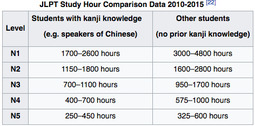
Studying a little over 3 hours a day, every day for 12 months will get you about 1100 hours of study. Japanese Language Education Center estimate you need between 950-1700 hours of study to pass N3, so about 1325 hours on average. Contrary to N5 and N4 though, where you can pass with even less hours of study than it shows on the graphic, N3 has a steep level of difficulty and it's closer to N2.
I believe it's very difficult to pass N3 before 14 months of serious study.
Makes sense. I'm going to still go for N3, just as a little goal. I definitely can increase how much I study and read.
Also, and I apologize for asking about this stuff so much, but what is the point of the JPLT? Is it just an accurate way to measure skill or does it hold another purpose?
You can try sample questions from all the levels here; http://www.jlpt.jp/e/samples/forlearners.html the official jlpt site. There's also http://www.jlpt.jp/e/samples/sample12.html some pdf files with some useful info.
>what is the point of the JPLT?
http://www.jlpt.jp/e/about/merit.html
It's just a language proficiency certificate, like TOFL for example. Unless you're in the medical field and looking to go to Japan, it's pretty much just a nice piece of paper. I suppose it looks nice on your resume regardless.
RTK was the first thing I did, and I've also read through all volumes of the DoJG. Both were very helpful to me, but they're just the beginning. It's a fine way to begin so long as it doesn't delay you too long from reading and listening to native content while doing an Anki vocabulary deck, which is the real meat of learning Japanese.
RTK is the definition of Mount Stupid for Japanese. It gives you a huge sense of accomplishment for learning something that doesn't actually help you that much when it comes to actually learning the language. You only need recognition of the characters, learning production of them all is mostly a waste of time, and something that should be, if it interests you at all, done after a few years when you can already read. I'm not going to say it gives you absolutely nothing, but it definitely gives you a lot of hope that will turn into disappointment later when you realize that it more or less doesn't help very much when it comes to actually reading. It does a little bit though.
If you don't know the characters you'll have a hard time learning new words, even in speech. Characters in the long run will help you learn to understand spoken Japanese faster than without them. It's just inefficient even if you don't care about reading.
File: 1485750919943.jpg (97.48 KB, 1280x720, 16:9, O0QkrgR.jpg) ImgOps iqdb

>i'm going to try learning japanese without using katakana/kirigana/kanji.
This was the best laugh I've had in a long time,thanks wizzie.
It literally takes one or two days to learn kana. As for kanji - you can postpone it until you learn all the basics (like grammer, etc), but eventually you'll have to start learning it too.
Very presumptious to assume your experience of learning times is the same for everyone.
File: 1485752441899.jpg (150.26 KB, 1280x1024, 5:4, japanese-hiragana-informat….jpg) ImgOps iqdb
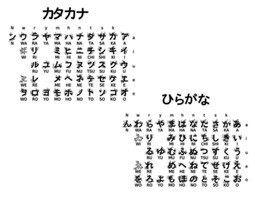
Kana is quite a simplistic syllable alphabet. There's really not much to learn.
For me it took about a week or so. The point is learning kana does not take very long.
Well there's learning Kana and then reading kana. When I first learnt kana, when reading kana it'd take me a couple seconds per symbol, and I'd forget symbols all the time.
But now I can recognise the symbols much faster, and it is just generally pretty easy to read it.
i hate those symbols though. my brain is formatted and region-locked to english only characters. doesn't matter how easy something is when you feel like destroying them. roman alphabet is all i have a chance at and so i will just type phonetically in the same manner as speech
>>20810
i can't express the rage and utter confusion i have for all characters of languages not english. i've tried for over a year but it only made me angrier, i absolutely hated it. this is the only option that will let me pursue it without boiling over>>20812
>>20810
If non-english writings make you upset why do you even want to learn Japanese?
Anyway, the symbols are confusing but there are so many homophones in Japanese that having an understanding of how the word is written really helps you differentiate spoken word. Spoken word is actually a lot harder to understand because of this, and you don't have the luxury of looking stuff up unless you want to pause something every two seconds.
Another example is こうなったら, in Rikasama I'm not sure what to look for even if I understand the context.
My question is, how should I go about looking up and understanding these (usually) kana-only strings.
File: 1486088418696.jpg (333.32 KB, 1134x1800, 63:100, ToLOVEる#09_084.jpg) ImgOps iqdb
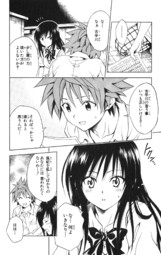
I apologize for double posting but I found a good example.
The sentence in the very last sentence.
風紀を 乱してばかりの あなたには 言われたくない
How exactly is 言われたくない being used?
こう (like this) なったら (なる become + たら conditional) = When it's become like this
Those are two of the most common words in Japanese so you won't have any problem recognizing them soon.
>>20902
I don't want to be told that by you, who does nothing but cross moral boundaries.
言う is in its passive form, which means the person doing it is marked by に (あなた).
For the other uses of という that are probably confusing you, go to https://core6000.neocities.org/dojg/ and read the example sentences for the multiple entries containing という.
Have you tried writing? That is how I learned, forcing myself to write characters 100 times each
2. Research grammar for 30 minutes (various topics)
3. Read until it's time to go to bed (usually about 5 hours when I factor out time spent eating and doing various other things)
Despite doing the above for 2 months now I still can't even understand even the simplest sentences. What the fuck am I doing wrong? It feels like I just keep running head first into a wall hoping it eventually breaks down.
Maybe pull back on the reading, or instead of trying to read a manga look for short 4koma webcomics and stuff that you can read quickly but understand better rather than reading a lot with little understanding.
I'm certainly not a fluent reader or anything but maintaining a reading schedule that is constant but not too much helped a lot.
>It feels like I just keep running head first into a wall hoping it eventually breaks down.
That's exactly how it works, although it's a lot more gradual and you will start seeing progress, you might just be not noticing it. All you have to do is keep reading. No one expects a lot of progress in just 2 months. If it's frustrating then you can try reading easier material.
Try some structured grammar study.
Take simple grammatical concepts and produce long lists of sentences using that learned grammar.
Then move onto the next bit of grammar.
If you've only been going for 2 months, don't expect to be able to understand much but extremely simple sentences. Japanese is radically different to western languages so you have to restructure how you think about the words.
Anyone who tells you spending most of your time reading that early is a good idea is bullshitting you. When I learned I watched anime for minimum 8 hours a day, and could actually understand most of it after 6 months.
I passed N5 after three months of study, and N4 after half a year. I was studying by myself using Minna no Nihongo. After that my motivation kinda dropped and I read only Touhou hentai. Nevertheless I passed N3 half a year later. Total time from beginning to N3: 15 months.
If you are consistent and practice every day you have the chance.
It was a challenge. And I wanted to prove that Japanese pick-only-one-answer test system is so bad that even a half an hour a day can get you a certificate.
I just started Flyable Heart and when I get tired and lazy I usually start to read Yotsuba. Hope I can improve soon so I can read more interesting stuff, can't even slog my way through 95% of the stuff I download.
there is no sound, the sounds are there, but i can't hear them in anki.
also, i managed to get pictures working, so everything should be fine with the directory.
if anyone has the same problem, use this https://ankiweb.net/shared/info/114060567 as it's pretty much the same thing.
That version of the deck has 3 cards for every word, which is a massive waste of time.
it's still difficult for me, especially kanji, going through each word even faster wouldn't help. and with audio not working(tried it again) in that other deck, it's probably my only option anyway since text only is pure torture for me です先輩
File: 1489973756572.png (826.65 KB, 873x659, 873:659, 2017-03-19_21-29-47.png) ImgOps iqdb
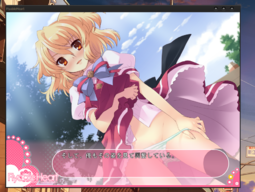
It's like they took the worst romance stories anime had to offer, and then added poorly drawn sex scenes and voice acting.
Sorry. Maybe If I was a hormone driven teenager like you I would be jumping for joy at every terrible sex scene.
I agree with you, I find them pretty bad.
I can't get into romance with 2D at all, welp, any sort of romantic story that focus on just having dates with succubi is so uninteresting, don't really feel the thrill of it, I don't know how visual novels makes so much success, it's boring and so repetitive and I don't feel interested in the story as well, it feels like small talk, you don't learn anything from it, I mean, succubi like romance and drama right? So it's more a female thing.
The only sex scene I ever actually got aroused enough to jack it to in a story driven VN was forehead succubus in cross channel.
You should try some VN where romance isn't the main focus like 殻ノ少女 or something, but these are more difficult to read. (they do still have bad sex scenes but they're a sideshow you can skip through always)
File: 1491053378801.png (683.6 KB, 788x2672, 197:668, anki-stats-2017-04-01@10-1….png) ImgOps iqdb

So let's start from the beginning: Why do you want to learn Japanese? Is this reason you have strong enough to pull you through the thousands of hours required to achieve even the most basic level of proficiency?
In my experience, no matter how good and solid your reason is, it's never going to be enough to carry you through thousands of hours of study. Your motive alone can't keep you going through all the frustration involved in learning another language. Your reason is good to get you started, and that's all it will do for you in the beginning. It might even change later on. You might give up on video-games and suddenly that desire to play all those obscure untranslated games is gone. I've seen many people giving up and all of them had better reasons than myself. Once you take that step and decide to begin your studies, your reason is left aside. What you will use to keep afloat are two things; learning to enjoy the process of learning (I'll talk about this) and second, routine.
Lots of people have learned Japanese before. Lots of people developed good methods to learn stuff. You don't need to come up with your own method. Sure you can tune your routine to make it just right for you. But don't linger on coming up with ways to learn a language. It's a waste of time. Don't fall for the "fluent in 12 months" bullshit. It's a lie. It is a very slow process. I studied for 4 hours everyday for a year and I still miss on pretty much everything. I have a 3000ish words vocabulary and still manga for children contain tons of words I've never seen before. It's a long process. You must accept this so you have proper expectations. This is something you'll be doing for a long time before you achieve any proficiency. There's a bullying culture on imageboards and lots of people will lie about how much they know or how easy this or that is and you're doing wrong or too stupid to learn. This is false. Most of those people know jack shit. Disregard them, focus on yourself and your own progress.
First thing is to learn Kana. Katakana and Hiragana, the Japanese syllabary system. You can use the stuff linked on OP or you can do it by hand. Simply go to Google images, find a chart that shows the correct stroke order and begin writing it. In my case in particular, for the first 2 weeks of learning Japanese I did nothing but write the Kana, over and over again. In one day I would learn あいうえお, then the next day かきくけこ and proceed to learn each row until I had all of them "memorized". I use quotes on memorize because it would take quite a while before I could read all the kana comfortably. I would constantly forget ナ, ヌ and I would constantly mix シ and ツ, ヤ and ア up. Even now after a full year, if the script is too weird, I'll have trouble reading it. Learning the Kana was the only time I actually wrote anything by hand. Only recently I began to hand write some Kanji, those that I keep forgetting like. Usually writing by hand is too time consuming but for the Kana, since there's not a lot of them, the muscle memory can really help you out.
Now that you know the first thing you need to learn, it's time to build a schedule for it. It's the perfect time to start building the mindset you need to keep doing this. Learning the Kana is quite fun, it's easy and you immediately begin recognizing them everywhere, which is satisfying. Do it like this. In one day, focus on a i u e o. For that day's 90 minutes, you'll focus on these 5 guys alone. Doesn't matter if after 40 minutes you already can remember them. Simply repeat, reinforce. Start small. I read lots of people don't study on weekends, like learning Japanese is a job. Study everyday. Try different times of the day and see how it works for you. To begin with try to make 90 minutes a day. Divide it in 3 sets of 30 minutes if you have to. Add a 20 minutes bonus on top of it if you can. Right before going to sleep, give another round of writing those Kana down. Develop a mindset of appreciation. Each Kana is a small and crucial piece of a key. Each Kana adds in and in time, you'll have the full key to open the gate to a different world. Impatience is your worst enemy. Your expectations might trample your motivation and soon you feel like this is pointless and annoying and end up quitting. That's why you must learn to appreciate each Kana, each word, each Kanji you're learning. Specially in the beginning, each word you learn is incredibly precious. Learn to appreciate it. Each Kanji is a little story full of meanings. Focus on the small, focus on what you can learn for the next 30 minutes or the next hour. There is a light in the end of the tunnel, but you need to keep passing. I still remember the first word I actually read in Japanese. It was すし. It was very satisfactory to be able to read something, anything. This is your job for the next 20 or so days.
After grinding those Kana you're ready to reading them in a full word. おめでとう!
It's time for you to begin learning some words. On your last day of grinding Kana, reserve some time to learn how to use Anki. More info at the OP. Download a core2k deck, with sound and images, sound in particular is very import to aid your memorization. Take your time to learn how to set it up. This will be your most important tool for the next year. What I'm going to write now maybe a little controversial: My advice is to forget about grammar for the first 3 or so months. Focus solely on learning those words and sentences from the core deck. Yes. For the next months you'll do nothing but learn those words and sentences. You'll be learning grammar through them. In my experience, trying to study grammar or grind Kanji before a 100 days of exposition to Japanese is a mistake and you'll be wasting your time. Grammar is nothing but how to organize and bend words so they fit properly. If you have no words under your belt and not enough exposition of Japanese sentences, grammar means nothing to you. There's no hook for those rules to grab on to. Once you begin wondering why the same word sometimes appears with a ~ませんでした instead of a ~ません, then yes, it's time to dedicate a small amount of time to grammar. As your vocabulary increases, your grammar needs will increase as well. But you'll only really need grammar when you begin to read native material outside Anki and doing that before a good 100 days of grinding the basics is also not a good idea. It's counter-productive to try to read anything before you amassed at least some vocabulary. You would just waste a lot of time looking for basic words instead of learning them quickly and less painfully through the core deck. With the Kanji is the same thing. Wait for your brain to get used to their shapes before grinding on them. A good rule of thumb is once you start recognizing them in different words or you begin to identify the same radical in different Kanji, then it's time to slowly look at them separately. Before that you'll be straining yourself with very few gains.
As you can see on my graph, I almost gave up on my 3 months mark. I lost focus, spent lots of energy trying to read native material and halfassing through Kanji and grammar. It was too many fronts to sustain battle. Kanji, grammar, reading manga, grinding Anki. It became too much and it began to feel like it was a waste of time. I had lost the sense of appreciation for the small steps. Once I mediated on the subject and shrank my studies back to just grinding vocabulary, my motivation improved again. That's a very important thing. Learn when to retreat so you don't burn out. Surviving is the most important thing. Always keep some energy in the tank so you're ready to carry on. When you're feeling strained, reduce, cut costs. Focus on one small thing. What is unacceptable though is not doing anything for a full day. That single hole of a day is enough to escalate to two days of no study, then a week, a month. Imagine studying Japanese is like a chain. Each day you must add a link and you can't compensate for a missing link on the next day, or ever. 15 minutes is better than nothing. Reading 2 pages of Yotsuba is better than nothing. Doing 30 cards is better than nothing. Try your hardest to do at least something related do Japanese, no matter how small. That chain cannot under any circumstances have a missing link. The more missing links it has, the easier it gets broken later on. That's how you build a routine.
A 100 days later and you have several grammar doubts and you have memorized a good number of Kanji and you're ready to focus on those two things separately in conjunction with your vocabulary grinding. I personally used Japanese the manga way. Read one chapter a day and every 3 chapters I would review them on the next day before progressing to the next. Kanji I did 8 a day. Balance is key, not burning out is key. If it becomes too much, reduce, if you feel like you can take more, cautiously add more. With Japanese the manga way chapters are usually short and you can read each chapter a couple of times in 20 or 30 minutes. Make sure you understand the point of the lesson. Review it again, even if it feels you already got it.
People tend to overestimate the power of accumulation. Say you're learning 15 words a day, plus 5 Kanji and reading one chapter of grammar. Sounds doable right? In that one day to keep up with all these things. But it's not that simple. You can't just forget about them the next day. It accumulates. Everything from the previous days you have to keep up with plus all the stuff you're learning now. And the stuff coming tomorrow…and the day after that and the one after that. After one week you have over a 100 words, 35 Kanji and seven chapters of grammar. Plus that same amount from the previous month and the same amount coming of the next month, etc. Keep this in mind and don't strain yourself. It's not a sprint race, it's a marathon, those who can keep going win, those who sprint and burnout are going to lose. Don't feel shy to reduce the amount of stuff you're learning if it becomes too much. Remember, surviving is the most important part.
The hardest part was the first 3 months after the Kana grinding weeks. Do everything in your power to survive them and chances are you'll be able to stuck with it, provided you manage to appreciate the process and build a routine.
Here's how it looks in a list:
-20 days for Kana (10 days for each sillabary)
-3 months of pure vocabulary grinding
-3 months of vocabulary grinding with a little of Kanji grinding and grammar study (provided you passed the rule of thumb mentioned above)
-3 months of vocabulary/Kanji/Grammar plus some reading native material
-Once you have finished 2kcore deck, reduce Anki time, mine words, increase your reading time, this is about 9 months in
-Reading native material and word mining should be your priority (study grammar on the go, as doubts appear)
-12 months later and your reading skills is improving daily. That weird sentence yesterday strikes you as much simpler today.
I think that's it for now. I'll gladly try to help you out if you have any questions or any criticism about what I wrote. This is of course what worked out for myself and each person is different. Although I do believe the routine part and building the right mindset to be something anyone will have to use. I'll try to improve on this post, have it better organized to have it as a pastebin or something on OP at the next Japanese Language Thread.
Thanks for sharing your experience. I wouldn't personally join your recommendation of that Core2K deck. That's the one with multiple cards for each word, right? The words in Core2K are so common in native material that it seems unnecessary and inefficient to do multiple new cards for each. The Core6K deck in the OP guide only has one card per word, and it worked well for me (before I moved onto a mining deck).
i've been studying for just a bit over a month, but i'll comment
>Why do you want to learn Japanese?
no real reason, i've learned english, so why not japanese, if i consume so much japanese media might as well learn the basics? though i guess for anglos learning another language seems intimidating.
>In my case in particular, for the first 2 weeks of learning Japanese I did nothing but write the Kana, over and over agai
jesus man, that's the spirit. i've tried writing it down but quickly realised that sites like realkana are far more effective. though i've been reluctant to learn katakana, but i'm doing fine in anki with hiragana alone.
>For that day's 90 minutes, you'll focus on these 5 guys alone
WHAT? you'll probably learn entire hiragana in 90 minutes if you study for 5-10 minutes each day on realkana like i did. though it's probably becouse i started doing anki(which means reading in japanese) without even learning every hiragana characater and not even touching katakana, it helped me to memorise them much, much faster.
>Usually writing by hand is too time consuming but for the Kana, since there's not a lot of them, the muscle memory can really help you out.
writing shit down seems totally pointless unless you plan to study in japan or something. but i'm sure i'd write it all down if i absolutely had too.
also, nearly everything you are saying is right there in op post.
though aside from anki i'm also doing japanese course on memrise, just to get used to typing. i study half an hour on average, it sucks to force yourself to do it when you really want to go to bed already, but 90 minutes a day? holy shit, that's hardcore for beginner. my advice - 5 minutes a day if that's how much you feel like studying. there is no hurry, japan won't take over the world. though it would be wise to do it everyday, got to mynoise, choose a rain sound or something and chill while learning for 10-15 minutes, you'll probably end up studying much longer.
>>22128
i have to study before going to bed, will read this pasta tommorow.
that core2k is more to my liking too, it's chill. while with core6k you learn too much too fast, it was overwhelming for me so i stayed on core2k, i don't care if i learn slower as long as i keep going.
>>21787
I'm not sure how it turns out later, but I started reading Little Busters! and I'm absolutely loving it. I like the focus on the male cast and the succubi are all enjoyable. It's pretty easy, at points, too. I think the main issue is that if I get lost when reading it takes me 10 or 15 minutes to start understanding conversations again.
>>22127
>>22128
>>22129
I'm roughly on my ninth month and it's encouraging to read this. Thanks.
>>22132
>though i've been reluctant to learn katakana, but i'm doing fine in anki with hiragana alone.
What are you reluctant about? Katakana is incredibly common in modern Japanese so I really don't see a reason not to learn it.
I'm really not sure I subscribe to this idea of a Mining deck though. If you see if often while reading reading then you'll learn it naturally and if you don't see it often then there is no point wasting time learning it through Anki.
The only exception I can imagine is if you want to learn sexual words or sports related slang.
>What are you reluctant about?
it's mainly used for loan-words, already know them. reluctant is just the way of saying i'm lazy.
>>22282
It's been a few months for me too besides some passive reading of like, a chapter of some manga here and there. This isn't the first time either.
Just treat it like a hobby, it's fine to take a break. Sure you might need to play a bit of catchup but I found everything other than words I was already having trouble with came back pretty fast, I never got this "I can't do it right now so I have to quit forever" mentality.
The first time I started was in 2011. I've been at it for like a month at a time at most. It's like this with everything.
you won't even beat a hard game in a month, let alone make noticeable progress in a totally alien language, no matter how hard you are pushing it.
it's really dumb to give up so fast, but you probalby know it.
File: 1492429673214.jpg (152.08 KB, 640x452, 160:113, 20170418.jpg) ImgOps iqdb

If a hamburger is made from ham, and a beefburger is made from beef, a Japari burger would be a フレンズバーガー
File: 1492511242664.jpg (200.9 KB, 869x1232, 79:112, 20170421.jpg) ImgOps iqdb

So… baby oil is?
File: 1492513303848.jpg (111.19 KB, 456x456, 1:1, 1491935865160.jpg) ImgOps iqdb

You don't eat baby oil
But you do eat sunflower oil, or olive oil, or sesame oil, or vegetable oil.
And you don't eat mineral oil either, or machine oil.
Is there an edible oil that is named after the thing it is for? Pan oil? Bread oil? Japariman oil?
食べないでください
ウイルスはいる
or
ウイルスはある
Talking about biological viruses. They're on the borderline, but I would like to know what is the accepted Japanese term for it.
If I wanted to tell someone there's a virus in the water I'd get stuck at the existence verb to use.
水はウイルスにある? いる?
いる
>水はウイルスにある? いる?
に marks the location, so it should attach to the water, not the virus. You can keep the water the topic by combining the particles に and は.
水にはウイルスがいる
Literally: As for in water, viruses exist.
Too general?
この水にはウイルスがいる
As for in this water, viruses exist.
>>22263
>>22282
i feel you guys.
My class went tits up and they started rushing things and I couldnt keep track so I ended up dropping.
I'll pick it back up when I move house though.
I dont wanna fail the people in this thread,its the only one I regularly check back on anymore.
Keep going,it'll be worth it.
Anki in the morning. Reviewing my 2k words (very easy, should take 30 minutes, tops). Then I will also add in more gramamr study with the DoJG deck and maybe, hopefully, I'll add some more example sentences from Visual novels and the Manga Way. Not sure if that is necessary though.
Then I'm going to read for a minimum of 3 hours each day. I'm going to not be overly reliant on text-hookers and try to work through sentences on my own. Instead of just constantly hovering over words in my browser tab I'll try to work through more sentences on my own, which actually isn't that difficult.
When I get to sentences I don't understand instead of simply moving on I'll stop and try to solve it cross-referencing grammar websites instead of being lazy.
Sorry for the blogpost. I want to motivate myself. Good luck to all fellow Wizards. Plenty of normalshits have learned Japanese so you should too.
polite sage
I doubt you even kept this up for a few days you lazy worthless piece of shit. Nice "attempt" though.
No actually I just think people who make plans tend to overestimate their will power and fail.
>>23286
>>23288
He was right. I always think about how I'm going to make a consistent schedule, and use 30% of my free-time learning Japanese. Sometimes I'll even make posts and try to motivate myself. But in the end I just end up wasting my day away.
>>23303
I agree with this. I don't know what else I can do though. I think another big fault when I study is that I keep a timer right on my desktop. I usually mark the time up to like six or seven hours, but I never actually start reading.
It's hard to know if the translation is correct without knowing the intended meaning.
>Still haven't started my Anki reviews
Fucking hell, I used to do them first thing in the morning, but now I've completely ruined my routine. It's actually rather fun once I start doing it, yet I can't force myself to begin. I wish I had at least a smidgen of willpower.
I'm fucking it up because I fucked up my sleep schedule and it's proving increasingly hard to get it on track.
I don't get what's fun about anki reviews though. Repetition isn't my idea of fun.
File: 1496627213637.png (117.99 KB, 720x1280, 9:16, Screenshot_2017-06-04-18-4….png) ImgOps iqdb
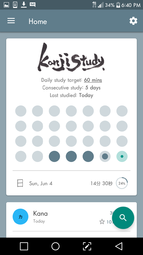
Hmm I meant for it to be more like bad 'explosion succubus' rather than 'bad explosion' succubus.
Nice progress, wiz. I'd suggest just learning vocab/kanji while doing grammar. Radicals are nice to know, but I don't think they're important enough to learn them by themselves. Practicing vocab also means you're going to be able to read stuff you enjoy earlier than if you studied radicals first. Learning radicals becomes a lot easier after you already know a lot of kanji, anyways.
What would be the easiest way to do this? Just having a dictionary open in another tab or is there a program for this?
You need to at minimum learn kana and some basic vocabulary/grammar first.
After doing that, I pretty much do what you're describing(except I don't translate hardly ever) and it's not efficient at all, just be aware of that. Anyway I use several apps on my phone because I buy raw manga/LNs to help motivate me to actually read them. I use Akebi dictionary, Jisho Dictionary, Google translate app, and Anki. Akebi is my preferred dictionary for looking things up either by kana or radical I only use Jisho because as of now Akebi doesn't support Anki card transfers so often I will look up the word by radical (to help cement it better) in Akebi, then paste it in Jisho to send a card to my Anki deck. I use google translate exclusively for the image recognition (which is very good) on small handwritten subscripts etc. that I have trouble making out, the actual translation in there is total garbage so I then take it to the previously mentioned dictionaries. Everything goes in a deck that I don't review nearly enough.
If you aren't going to use a phone, the web version of Jisho is the best dictionary, and you can use rikaisama to send cards to anki. I don't know of image recognition software but I'm sure it exists. Also make sure you have an IME on whatever system you use to look stuff up.
Also, don't try to translate before you can simply read. Associating vocabulary with words and ideas you know in your native tongue and trying to translate Japanese into coherent sentences in it are very different things.
よし、つずけるじかんだ! Wish me luck and perseverance, fellow linguist wizzies.
What made you stop studying a year ago? What made you come back? How much you managed to retain after a full year away from the language? Do you use Anki? It must look really nasty after a full year of not doing any cards (unless of course you limited how much cards each deck can acumulate). Pardon my curiosity.
>What made you stop studying a year ago?
Depression and then getting into some time-consuming videogames.
>What made you come back?
I was nagging myself to return to it all the time during the year, didn't even disable the Japanese IME layout for the keyboard, but still lacked the effort to dive into learning again. And yet now I somehow made it back, the final push ironically being those twitch streamers I mentioned.
>How much you managed to retain after a full year away from the language?
A year ago I only learned hiragana, katakana and some basic grammar. Retaining it wasn't really an issue since I watch a lot of anime and always stop to read any signs and such I see (as well as karaoke text if there is any).
>Do you use Anki?
Nope, for now I use JWPce and the already mentioned Manga Way. But I have many other stuffs downloaded for later (when I'm done with grammar).
I have no idea what game that is, but provided it's Japanese the first question would be whether or not you enabled the Japanese locale.
Yea. All Visual Novels work, it's just the text from the game doesn't appear in ITH. I've tried ITH2.3 and the newer version.
There was this hongfire thread http://www.hongfire.com/forum/forum/hentai-lair/hentai-game-discussion/tools-and-tutorials/15208-agth-text-extraction-tool-for-games-translation?p=2072401#post2072401
It provides a "h-code" for the game, apparently for an older machine translation program.
Presumably ITH has an input box to put that hook-code somewhere. It's probably not specific to the texthooker. Also, ITHVNR is generally recommended over ITH these days.
https://djtguide.neocities.org/resource%20guide.html#Visual Novels
Nothing really seems to be working, so I think I'll take the inevitable plunge and play the game without a texthooker. Luckily, the dialogue seems easy besides some random boxing terms.
Thank you, and everyone else answering questions in this thread, regardless.
File: 1498068118891.png (3.63 KB, 120x94, 60:47, dewa.png) ImgOps iqdb

The particle that marks the topic is read "wa" while written は.
では is a conjuction/interjection meaning then/so/well or more literally "as for what comes after that", implying that the topic is being changed.
It took me a while to understand what you were asking. After a while you just get used to は having two pronunciations: one when used as a particle, one when it's part of a word or something.
In this case it's being used as a particle. Give it long enough and you won't even notice. Same with を.
がんばって見て!
File: 1498274024361.png (16.13 KB, 399x144, 133:48, help me.png) ImgOps iqdb

お父さん
It just means "Dad."
The お in the beginning denotes respect, and changes the word from casual to polite (casually, it would be read as ちち); you wouldn't refer to your father as 父 (ちち) in public, since that doesn't show the correct level of reverence. さん is just an honorific that denotes respect.
Basically, this is a polite/respectful way of saving "Dad."
File: 1498320433748.png (56.27 KB, 1070x369, 1070:369, dafuq.png) ImgOps iqdb

Anyway, I thought pic rel was only a joke? What's the purpose of a language that's this easy to misunderstand? How do they communicate on the radio or telephones and make sure they're understood 100%?
Pardon me if I'm being stupid, I am.
There was a time when they tried to romanize the Japanese language but then conducted surveys that proved that the japanese citizens actually do know quite a few kanji, so it never happened.
They are held back by their language. It's sad, I wanted to go to China initially but they are like 1 step away from mass foreigner deportation and 2 steps away from just rounding them up into concentration camps. (Maybe exaggerating but still foreigners aren't welcome there.)
So Japan it is. Treat it like a challenge.
I don't think there is a point to having such a convoluted writing system but if you ever want to go there you have to accept it.
I don't think I want to go there, I don't think I want to go anywhere at all anymore.
I still fantasize about it, or "dream" about permanently moving to New Zealand's but I don't see it happening anytime in my lifetime. But might as well understand more of the spoken language in the anime I'm watching, I guess.
I have one issue with Anki though. I have a very easy time to retain the meanings of words but extremely difficult time to retain the readings. Is this normal? Anyone got any tips to improve retention of readings?
File: 1498361118930.jpg (81.89 KB, 1280x720, 16:9, e3b6df6da-1.jpg) ImgOps iqdb

I started with a mining deck from the get-go, by putting in the words that showed up in Tae Kim's guide. Then I just included every single new word I found by reading. It was super useful and helped push me to a level where I can read much easier.
By now it's near 10k words, though I no longer add many new ones to it.
I find the meanings much easier to remember too, it must just be easier for the human brain to associate pictures with meaning rather than engaging the language centres.
The solution is just grind. You need to grind them out. Personally I like to just use something like Obenkyo (android application) while on the toilet. Or other short periods of time where there's just a bit of waiting.
I recommend finding a way to enjoy the grind rather than making it a chore.
I find it incredibly helpful and mine from everything I set out to read. I learn the new words like this much faster and they stick a lot better compared to how the common decks were for me. Basically you are getting a context to think of the word in from whatever you're reading, and then reinforcing it with the cards instead of the other way around. A lot of the time the word will also be used multiple times in the work too which also helps.
You can refer to your father as chichi when talking to other people, but when talking about someone else's father you would use the honorific otoosan お父さん. You will also use お父さん when speaking to and addressing your own father (Not that many wizards have to worry about that).
I want to learn hiragana and katakana but kanji are way too much for the scope of my mind to learn.
Would I be able to write everyday Japanese without using kanji at all?
I don't think so.
You should try learning kanji, well vocabulary to be more specific. Just a little a day goes a long way. If you do spaced repetition you'll see how your mind can absorb more than you thought, even if it's less than you'd wish.
>everyday Japanese without using kanji at all
Speak? Yes, to an extent. Provided you learn grammar and memorize the lexics.
Write? Well, kind of, but your scribbles will look like those of a pre-schooler to any real jap.
Read? Not a chance. And since most of us learn the language to have access to the vast spectrum of entertainment media and resources which never gonna be translated, learning kanji is a must, sadly.
But hey, it seems inhumanly difficult only in the beginning, then your brain starts adapting.
File: 1498613046417.png (777 B, 105x5, 21:1, small text.png) ImgOps iqdb

It's no harder than reading the alphabet. Japanese people use the same size fonts as us. You just lack experience reading Japanese, so you're trying to discern the individual lines instead of the general shape of the kanji or word. Read for one or two thousand hours and the issue will gradually fix itself.
File: 1498617821141.jpg (96.23 KB, 1296x778, 648:389, 2017-06-27 19_43_29-あきゆめくく….jpg) ImgOps iqdb
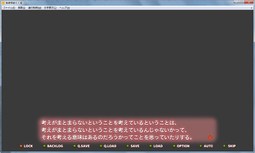
By the way, when I was beginning I practiced almost exclusively with the relatively large fonts of VNs. But after reading about 8 VNs and a lot of Anki I found that, with a very small amount of practice, I had no problem reading the smaller fonts on sites like http://dic.nicovideo.jp/
I wouldn't worry so much about that. 90% of what you'll be doing is relearning old stuff. Hammering it in is the only option.
Like on the toilet. I review kanji and vocab while sitting on the loo. I actually had some stomach troubles recently so I got lots of learning time in.
It's true, but I think the whole spaced repetition paradigm suffers when you're not doing it strictly and regularly, and feeling like you forgot a lot during a pause isn't good for morale. But it's true that as long as you have dedication to just hammer it in relentlessly, you'll learn eventually. It's a game you can't lose as long as you have patience. That's a bit comforting to know.
I also think it's good advice to get into the habit of whipping out the phone and practice every idle minute you get. I'm slowly getting used to it and it will clearly do wonders in the long run. I think it's very beneficial to have this habit because it allows you to learn without occupying slots on your schedule.
>>23703
About 1½ hours dedicated sit-down study. I use the standard 20 new words per day rate, but have a tendency to click "hard" instead of "good" just in case, so I get more review time. The total study time will gradually creep up once I get in the habit of studying during idle/downtime.
I haven't been going at it for very long (about a month) but I already get that feeling of looking forward to the next study session. It will probably just get easier as time goes on. It seems like as long as you power through the most difficult initial few months, I think you can say you "made it" and are guaranteed to be able to continue learning without feeling like it's difficult or burdensome.
I'd say you learn basic grammar before memorizing kanji and vocabulary.
The same way that it's smarter, when building something, to learn how to use the tools before getting the pieces. Some pieces you'll need so you can practice with the tools, but you shouldn't buy tons of it.
Try to measure anki with time instead. For me it works to prioritize quality and not burn me out.
Go for the standard 20 new cards a day and see how it feels like.
>>23745
I wrote an extensive post about this >>22128. My experience is the opposite of >>23747, imo you'll waste time trying to study grammar before some exposition to the language. It will feel like arbitrary rules and it will be difficult to memorize. Read that post if you're interested.
>before some exposition to the language
Imo watching anime for years is enough of exposure for diving into grammar and getting a grasp on it without too much difficulty. The grammar falls like puzzle pieces into the correct spots due to the language intuition which has been passively acquired through listening.
But as for those wizzies who study Japanese without having been majorly exposed to the jap media (for whatever reason that might be) - yeah, you might be right. Still I think starting with grinding kanji like some images in a grammarless vacuum is not the most sensible approach.
File: 1499821165418.jpg (148.08 KB, 680x919, 680:919, 1497320012722.jpg) ImgOps iqdb

>how many anki cards should i memorize a day
At the start, 20, increase or decrease depending on how you feel. It's going to be a pain in the ass for 2-3 months, but after a while it gets WAY easier.
>>23745
Before, during and after you start reading your first work. I'm not sure how well smart you are, but for me reading a grammar guide made no sense until after I had struggled through a bunch of material I didn't understand. (I read 2 volumes of aku no hana not understanding how "na" adjectives worked, which was confusing, but in the long run helped me.)
Also, has anyone here read Sakura no Uta /サクラノ詩. Just wondering if it's worth my time.
I know I'm replying to an old message, but I think I might be able to help with that particular sentence structure some more.
と is one of the harder particles to properly learn in Japanese and has from my current knowledge at least 3 possible uses.
1) And. Used for example with two persons. A と B → A and B
2) With. Used for example when talking about with who you are doing something. A と B → doing B with A. The party who is doing B with A is usually not written due to how clunky it sounds, but is instead picked out of the context.
3) This is the one that's being used in the image. Can't think of any direct translation, but feel free to add if you've got something suitable. A と B structure is still the same, but this time A can often be a whole sentence that functions on its own while B is a verb used to relate to A in somewhat of an explaining/storytelling manner. "Sore wa muimi" to omotta → "That's nonsense", I thought. This example sentence is from your own perspective where you're talking to another party about some retarded thing that happened during your day. As usual, the speaker is picked from context in the Japanese version.
Now for the image in question.
A = これはと-ちゃんにあげよう → Let's give this to daddy (raw translation without context)
B = おもって → to think in -te form
Applying the logic above, this sentence could probably be loosely translated to something like 'Thinking I should give this to daddy, I brought it back with me'. Again, the context might change it a bit, but using this sentence structuring logic, you should be able to come up with your own reasonable translations, provided you are familiar with the other words of course.
Moving on, I'm not familiar with the usage of 以て(もって), but think there's a reasonable chance the correct word they are using is 持って, the -te form of 持つ (to hold, to possess). The rest comes indeed from 帰る (to return). This kind of two-for-one verb usage is quite common in Japanese. Again, I'm somewhat unsure about this one. Take it or leave it.
Source: Roughly 5 years of casual self-studies.
Yup. This usage of と is generally called the quoting particle. More here:
https://core6000.neocities.org/dojg/entries/169.html
One important usage of と you forgot to mention, though not relevant here, is "if".
You want phonetics? Learn Korean then. They got rid of kanji and are now 100% phonetic, good luck (you'll need it).
well its not just phonetics, its that every word is like a work of a mad calligraphist
latin alphabet for life, i will just read the translations, i cant put thousands of hours into this
Heh I used to be like you,but when you start learning kanji in words using anki is not that hard at all.
Don't even learn kanji by itself,learn them in words and it will be much easier,because kanji are as building blocks for words.
>>23770
Don't try to write the damn things if you don't want to,you don't really have to,most nips don't even write those things anymore.
Concentrate on reading and listening and maybe producing.
>latin alphabet for life
Oh, go ahead and try learning Hungarian or Finnish then, with their dozens of conjugations and stuff.
Admit it - it's not about kanji or phonetics, you are simply unwilling to put effort into learning a foreign language, be it Japanese or anything else. Were it not for kanji, you would find a different excuse.
>i will just read the translations
Suit yourself. I personally grew tired of relying on some memetard communities who've usurped subbing/scanlating niche these days. Also a huge chunk of Jap media is not and likely never will be translated at all.
No more copypasting and alt-tabbing finally.
http://www.polarcloud.com/rikaichan/
File: 1499930757188.jpg (99.02 KB, 878x573, 878:573, tatsu.JPG) ImgOps iqdb
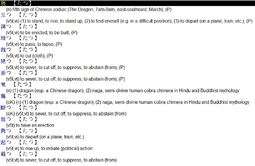
I keep noticing btw that apart from homonyms there are many instances when the same word (both sound and meaning) can be written with different kanji. At least according to dictionaries.
Why is that and what for?
I think it's mostly for subtle differences in the kanji. Although 絶つ, 断つ, 截つ, and 斷つ have the same meaning in that dictionary, if you look up all those kanji separately, you'll find all of them don't have the same meaning. I've personally seen this be used when an author repeats the same word with different kanji in order to emphasize the multiple meanings they want to convey. However sometimes even the kanji have the same meaning, in which case perhaps one is older or has different origins than the other.
File: 1500236315381.jpg (16.34 KB, 266x189, 38:27, sakura.jpg) ImgOps iqdb
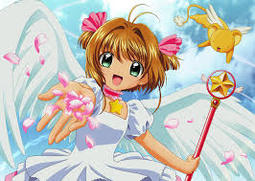
> How long untill you guys could read VNs or watch anime unsubbed?
It took me around 3-4 months of learning grammar/reading manga until I started reading my first VNs. As for anime, I think how long just depends on how much time you spend practicing listening. I used all of my time studying solely on reading, so even after over 2 years I still have some trouble with anime and speaking in general, although my vocabulary/comprehension itself is fine.
>How long untill you guys could read VN
Don't get any false expectations from >>23812 though. You won't be having any fun reading stuff before a year or so. I'm 14 months in, study every single day for 4 hours minimum and reading manga still feel like studying half the time because I still use the dictionary fairly often. Sure, you can begin reading in 3-4 months time but it's not like you'll be breezing through the text, there will be lots of effort put into it and way more months than 3 or 4 before it feels natural at all. Just giving a fair shake on how it goes so you can adjust your expectations.
>watch anime unsubbed
I can't watch it yet. With Japanese subs on I can distinguish the words but without it everything blends in my ears and it's a mess. But I don't really care for listening so I'm not sure how far you can go in a year if you focus on that.
>I think I should focus on relevant words related to the type of anime instead of learning useless words for food or work
You should focus on the 10k most commons Japanese words regardless of what you're planning to read or watch.
http://www3.nhk.or.jp/news/easy/
I can read the articles without too much trouble but I still use the Rikaichan applet to translate words I don't know.
Now that I am comfortable with that level, I am aiming for intermediate level and I started using "Tobira: gateway to advanced Japanese."
It depends on the individual really, I had lots of fun with Flyable Heart at about 6 months in, and literally breezed through Hanahira about after 4 months. But to be fair, both of those are super easy.
Even with manga, if you pick shounen/shoujo works that still have furigana, it's pretty easy to have fun even if you have to look up words.
I'm not sure about doing the core10k, though I've never done it. Mining words from stuff I read was easier for me, since then I could see the word in context first. Though I suppose best thing is to try both, and see what works.
My bad, didn't mean to make it sound that easy. It actually took me around 2 months each to even finish my first VNs. My first year was basically struggling with chiitrans every other sentence, plugging in the English equivalent of words to translate in my head.
However, I think you can still enjoy reading even despite the slow speed. It can definitely get frustrating at times though.
Do you need a lot of cultural background to really "get" it as well?
It takes native japanese people like 15 years to get to 8th grade level.
But really you shouldn't be worried too much about the speed of progress. What's important is that you turn the learning itself into something you just do as a way to kill time. Getting hung up on the progress is a good way to start not enjoying the learning process and then giving up.
はなす hanasu
話さ はなさ hanasa
話し はなし hanashi
話す はなす hanasu
話せ はなせ hanase
Is it something about politeness? My textbook hasn't covered this yet so I'm confused, I need to know how to use verbs so I don't look like a rude idiot using the ます form always (the only one my textbook uses, or has been using)
> the ます form always (the only one my textbook uses, or has been using)
Why not use something better, like Japanese: The Manga Way? It's a common mistake to spend ages working through textbooks that shield you from how the language is actually used. You don't really start learning Japanese until you're reading and listening to native content, in my opinion.
>so I don't look like a rude idiot using the ます form
There's no point trying to produce at your level anyway. Read this: http://www.antimoon.com/other/myths-speaking.htm
About the verb forms you posted: that's how Japanese people learn verb conjugation, but it's not normally how Western sources teach it. Japanese people understand 話します as the continuative form of 話す, 話し, plus the auxiliary verb ます to express politeness. Western sources tend to treat 話します as a single verb conjugated from 話す. It's fine to start with the Western interpretation, but conjugating with ます "form" as a basis, as many textbooks try to do, is very silly.
Your textbook is not very good. Verb conjugation is one of the most important parts of Japanese, perhaps the most important, next to conjugation of other words. Try Tae-kim's guide instead.
The ~imasu conjugation is just an addon to another system so teaching it first is retarded. The goal of most textbooks is to get people polite as fast as possible and then get them to actually understand the language later. It's no good.
だめです
Thanks, wiz I went through several barely understanding, I found a deck with the Genki 1 & 2 vocabulary in isolation which I think is better, it helps solidify the word. I'll do this deck then retry Core2k/6k
>>23969
Did you learn grammar? If not, try doing it - it's easier to learn new words when you know how to manipulate them.
most likely you are reviewing bunch of words without actually learning them first, you should actually learn them before reviewing and the most effective way is to not overload yourself. also, don't use deck from djt, it rushes things too much, use top deck from anki site, it's much slower paced which is good, at least for me.
Your pile is too big. But one thing you need to expect is you will forget kanji. Over and over again. Even when you think you got it, you will forget it again.
Until one day, far in the future, you actually remember the damn thing.
Excellent idea. I first thought you were only supposed to learn grammar after you have a bunch of words under your belt to play with, but there's no harm in starting now.
>>23976
I actually err on the side of caution and always press "hard" for an earlier review even when I find the word "easy". But it's true that lowering the amount of new words per day should help.
>>23977
Good to hear it's normal, at least.
File: 1501168629569.png (388.97 KB, 687x2995, 687:2995, anki-stats-2016-10-05@21-0….png) ImgOps iqdb

I don't know how long you've been studying, but if you're new, it gets easier. Here are my anki stats for when I first started. 11.4% correct, and that is with me essentially cheating just so I could finish. And not to mention, nearly 200 minutes.
Now I usually can finish my mining deck and core2k deck in about 70-80 minutes.
File: 1501224599495.jpg (45.85 KB, 669x268, 669:268, Passing JLPT.JPG) ImgOps iqdb
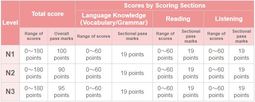
Yes. Lots of people just go straight to N1 when they're good enough instead of paying the fee each time doing each level. I just want to know about the listening part because I have a few thousand hours of reading practice compared to barely any pure listening practice.
We'll first off, what did you do to practice reading and listening? How far are you in Anki too?
The listening part of the test isn't that bad, and that is one of the gripes people have about the test. It emphasis Kanji and Grammar. So it's really up in the air.
>We'll first off, what did you do to practice reading and listening?
99% of my reading has been manga/vns/lns/websites but my listening practice is probably less then 30 hours. It takes me about 50 minutes to get through an anime episode switching between Japanese subs opened in aegisub. I'm worried I've bitten off more then I can chew but I'm still hoping to scrape through.
>How far are you in Anki too?
My vocabulary deck is the main one I use and I'm up to 22,000 words.
>It emphasis Kanji and Grammar.
This bit should be fine, I have done heaps of reading and can now read fairly hard stuff. I just think I fucked up by focusing almost entirely on reading.
Just keep listening. I'm sure it will be okay if you can pick out key words.
How long have you played VNs? If you have the sound on I think you'll be able to make out simple sentences by ear. I guess my main suggestion would be to practice listening without anime or subs for a bit.
Godspeed to everyone in this thread though, you guys are awesome for trying so hard!
File: 1501278165628.jpg (67.24 KB, 1024x576, 16:9, 1456093703382.jpg) ImgOps iqdb

File: 1501324203859.jpg (4.69 KB, 104x178, 52:89, 1501315737132.jpg) ImgOps iqdb

Indeed. It feels weird but pretty good when you start thinking by the principals of Japanese syntax.
I've been reading vn's for around 2 years so I guess that count's a little for listening. There's still a few months until the test if I focus most of my energy on listening I think I might be right.
We're all gonna make it r-right
https://en.wikipedia.org/wiki/Japanese_verb_conjugation
https://en.wikipedia.org/wiki/Japanese_particles
https://en.wikipedia.org/wiki/Japanese_counter_word
anyway should i be moving onto katakana now?
do you guys have any tips on how to not get get katakana confused with hiragana the only thing i can come up with is that hiragana has more curves
also anyone else writing in japanese too?
Yeah it's good but you haven't really memorized yet. It takes a couple of months for them to really stick. Sometimes if the font is different you'll get lost but don't worry, it's quite common. Keep pushing.
>anyway should i be moving onto katakana now?
Without stopping Hiragana, yes. Do both now.
>do you guys have any tips on how to not get get katakana confused with hiragana
Same way you don't mix up A with a, B with b. You memorize it and that's it, it gets as obvious as A and a after a short time.
>also anyone else writing in japanese too?
Only time I ever wrote Japanese by hand was during the first 2 weeks I was grinding the Kana. After that there was no good reason to do it and I stopped, it's a waste of time imo.
It's a meme that you can learn hiragana / katakana really quickly. You can shove them in your head in a day but they won't stay there. Go for the slow and steady approach, learning Japanese is not a fast process.
But yes, do katakana now. You'll mix them up now and then and forget the hira and kata fairly often so don't worry about it, just take a note that you forgot and spend some time relearning it.
Mixing them up isn't a problem I've had, it's easy to tell if it's kata or hira, but you will have the case where you remember the kata but not the hira version of the character- that happened often for me.
As for writing them- do what you find fun. If you like writing them out, write them out. If you hate it, don't. Finding a way to enjoy learning Japanese is more important than progress. Personally I actually used the DS game 'my japanese coach' since it has games that give you letter writing practice, and some kanji writing practice (beware, some are actually written wrong) as well as a decent selection of basic grammar and vocabulary. I don't recommend it as a single source of learning 日本語 but it's okay. There's also the android app Obenkyo which I use all the time. I use it to practice writing kanji on the toilet, or while waiting for pasta to boil. It also has drills for vocab and characters too.
It has a grammar section, but it's just a copy of the tae kim guide which is better read through a browser. There's also JSho which is just an android japanese-english dictionary. It is ad supported though, but it's a good dictionary.
I've been studying for about 2 months and my problem with katakana is that there's not enough practice opportunity. Hiragana gets hammered into your head during anki sessions but katakana is much rarer so it doesn't stick as well.
I can't wait until I'm fluent enough to infiltrate japanese imageboards and shitpost there.
File: 1503522133067.png (1.05 MB, 1152x2048, 9:16, Sakuya.png) ImgOps iqdb

Anyway, just wanted to share and possibly motivate someone too.
I'm >>23486 btw, and things have been moving pretty steadily since then.
一度は何とか自分を信じている。
also bump
I was never one of those 'kana is enough' people, since you just look at some japanese and it's half kanji and you realise "I should know these things"
I wish i could channel my Asperger into にほんご but i keep having doubts about myself and being lazy cause im scared to start but when i do start i learn pretty quickly
anyone have a video that could perhaps help me learn to stop being scared to learn new stuff?
i would greatly appericate it its honestly the only thing that holds me back anymore
File: 1503664241615.png (89.21 KB, 459x172, 459:172, doraemon.mangawiki.org_201….png) ImgOps iqdb

Hey man, good to hear from you again. I was the guy who asked you a bunch of questions >>23488. Glad to know you're still at it. Do you have a routine yet? My 'feel good' learning sensation never lasted me enough to the point I could count on it through all this time I'm learning. I can really only count on routine to carry the basic grinding.
>>24257
Would it help you if you knew beforehand what to expect for your first year of study? If you know the road so to speak, it might give you a sense of safety and encouragement. I wrote a fairly detailed post about what to expect for the first 12 months >>22127, >>22128, >>22129. Hopefully it can help you. Sorry it's not a video.
Anyway might as well write a small update. I'm 17 months in now of daily study. Been putting about 3 to 4 hours everyday and still can't read magazines or honestly most things that's not kids manga. Can't really read Wikipedia pages for example. Right now I'm going through Doraemon's 44 volumes, currently on the fourth one, finished the third one yesterday. I can read the whole volume "200 pages" in a couple of hours if I do an extensive reading on it and understand a good 80ish% but they actually take me about 3 weeks to go through. I intensive read the shit out of everything and I end up reading each story about 4 times. Not sure it's the best approach but I'm planning to continue doing this until I reach 10k words "currently know 4k, according to Anki". Then I'm planning to do more extensive reading instead. We'll see, if anyone here who's been doing this longer than me and have some advice I appreciate it.
One very interesting thing I noticed. If you're reading manga with furigana, you're not really reading Kanji. My first reading material was Yotsuba, as with most people here I assume. As you know they have furigana for each Kanji, regardless of how easy it is. Doraemon doesn't have it for most primary school Kanji and most of common words and it's amazing to realize how difficult this was at first. Turns out, in Yotsuba, though you might think you're reading the Kanji alone, even having the kana in the corner of your eyes while you read it helps you out a lot. When it's not there at all it's a whole different business. What's more interesting is I began reading Doraemon some 3 months ago and by that point I had just reached secondary school Kanji (about second half of jlpt2) so I supposedly know all those Kanji, but obviously not right. As with everything, the first volume was really difficult to go through, now things got a lot smoother but curiously not particularly faster. I still pick up a bunch of new words everyday out of this children's comic book.
I recommend giving a chance to Doraemon as your next studying material after you're done with Yotsuba. Stories are short, characters are nice and relatable (pic related) and it's literally a cultural phenomenon, Japanese media references it all the time and some of its gadgets became expressions in everyday language.
File: 1503672513979.jpg (1.05 MB, 1420x800, 71:40, 25727814.jpg) ImgOps iqdb

>Do you have a routine yet?
Every day I start with an Anki session. Then study kanji using a couple of books (I'm also making a neat vocabulary, will probably share it here once I'm finished). Sometimes I also use sample JLPT tests for reading and other tasks.
I finished Manga Way some time ago, so grammar is no more a problem (and honestly I think jap grammar is really easy, except for syntax (namely complex modifiers) which can sometimes seem like a puzzle).
Rikaichan helps a lot btw. Like really a lot. I can't stop insisting everyone should use it.
Will start reading Yotsuba soon.
>I finished Manga Way some time ago, so grammar is no more a problem (and honestly I think jap grammar is really easy, except for syntax (namely complex modifiers) which can sometimes seem like a puzzle).
It's not really possible to get good at grammar without a few thousand hours of native input. You're going to misinterpret a ton without even realizing it.
If by "get good at grammar" you mean quickly using constructions in speech and understanding them when listening, then yes I agree. No problem reading it though, except for when some really screwed up modifiers are used.
No, that definitely includes reading. You're just not noticing your mistakes or haven't tried reading enough Japanese outside tests/textbooks.
I won't argue. Yet. But perhaps I will once I get N2 (or maybe even N1) next summer.
It's good to have confidence I guess, but you'll need to read for at least ~1700 hours to acquire N1 level grammar, which is kind of my point.
File: 1503677025166.jpg (103.72 KB, 850x850, 1:1, tQxoErFDGWI.jpg) ImgOps iqdb

You have no idea what I'm capable of when I am obsessed with something.
Anyway, we'll see.
If I fail I'll commit seppuku, not even kidding.
inb4 Ken-sama
File: 1503683363030.png (49.47 KB, 765x512, 765:512, djt mount stupid.png) ImgOps iqdb
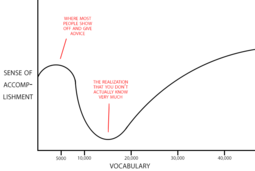
I've been learning for 5 years and you have ups and downs of confidence. You read something easy and think you're awesome, then you read something else and realize you're garbage. This image is accurate, but people in their first year will refuse to believe it. You end up with the feeling of "I'm almost there", but it lasts for multiple years.
If you've been learning for 5 years several hours each day (like I'm doing and not intending to stop) then you have to be really great by now.
Check out this twitch streamer. According to his words he's been studying for 5 years. His japanese is perfect. He doesn't even have an accent. And I doubt he's been studying everyday since he's most likely a norman by our standards.
https://www.twitch.tv/debisuke
Well, yeah, living in Japan while studying it probably helps a whole fucking lot but still.
Naturally I'm not saying I'm going to be a pro by next summer, but I bet N2's gonna be a catch for me by then. I'm already doing N3 for goodness sake.
Anyone can understand a textbook, you are saying you haven't even started reading read stuff yet, let alone listening which is even more difficult. You're extrapolating from early progress, but the stuff you learn early accounts for a bigger percentage of the language than stuff you learn later on. That's why you have this feeling like you're "almost there", but the time investment for payoff extends exponentially because of this fact. I remember 5 years ago having a blast doing Anki cards and realizing how easy it is to memorize kanji compared to what I previously thought, but the progress will slow as you finish with the basics. Kanji and grammar as a whole to me are part of the basics, stuff you can get done relatively quickly, and it feels like you're making a ton of progress. The time consuming part is vocabulary, listening and understanding cultural references. This last point almost no one mentions, but is actually very important. You probably don't realize just how much people will reference places, celebrities, etc. that everyone will know, but you won't, until you learn them.
>you are saying you haven't even started reading read stuff yet
I didn't say that. I read Japanese sites and exam texts.
>let alone listening
8 years worth of anime. Sometimes even watch it with jap subs.
>this feeling like you're "almost there"
I'm not almost there but I'll be in a year or so. Again I repeat - I'm not talking about "being excellent" in jap, I'm talking about passing the JLPT exam which are different things. N2 is not even that difficult.
>You probably don't realize just how much people will reference places, celebrities, etc. that everyone will know, but you won't
Yes, I realize it and I also realize those things won't be on the exam.
Oh okay good luck with your N2 certificate then. I thought you wanted to learn Japanese learn to read and listen to Japanese, my mistake.
I really doubt that you can't read SoL manga or play doujin games unless your Japanese is of super-advanced level. Hell, I used to know a guy who watched Mushishi without subs after only 5 months of studying and he managed well.
Anyway the whole conversation seems like one huge misunderstanding. It's as if you assumed I claim I'm gonna be as good as japs themselves after one more year of studying, when all I meant is that if I already manage high-level exams with the help of Rikaichan, it means that all is left for me is to keep mining lexics and expressions. Considering the motivation I don't see it as something that difficult.
You don't have to be a genius to speak and understand a language. Languages are designed so that even below-average people can communicate with them, otherwise society wouldn't function. It's all about exposure and practice.
I absolutely agree. It's that other wizzie who makes it sound as if it is some kind of rocket science.
File: 1503854289375.png (560.98 KB, 1903x2677, 1903:2677, anki-stats-2017-08-27@20-1….png) ImgOps iqdb
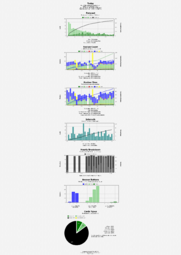
It means you've studied 29 days in the last 30 days, which means that in the last 30 days you skipped one day.
I doubt someone who learnt katakana and hiragana would be able to read words in just 2 days sure its possible to remember all the characters but lets say you skip the 3rd day of study or just put less time into study on that day well…. the the person will forget around 30%-70% of what they learnt
for me it took 3 weeks at about 1-3 hours a day studying to remember all the hiragana and katakana now i recognize them fast and read them
こんにちは
>Beginner here
I now know both katakana and Hiragana and i am not really sure how i should progress next i was thinking about learning the first 100 most basic kanji but i realized that even though i can read hiragana and katakana i usually don't know what the word means nor do i have a good understanding of Japanese grammar
could someone link me to a guide/or something else, to start learning sentence structure and basic words? (i already know animespeak basic words)
Thank you!
my goal is too learn a few of the most used kanji (around 100) and a few of the most used words how realistic is that goal?
and not to brag but i also know how to write them (which is alot of fun)
also one more thing do you guys have any Japanese podcast or you tubers you listen to?
i like to listen to them as background noise and a way of learning please link me
Now I'm happy because Yuru Yuri seems simple by comparison and I read the seventh volume in a fraction of the time it took me to read the first.
From Kana most people either go to Heisig (or similar methods) or Tae Kim's grammer guide onto Yotsuba. This question has been asked thousands of times before you should really check out google or djt on 4chad.
Do you study at the same time everyday? I find I learn much better in the morning. Of course everyone has good and bad days but its hard to compare if you study at different times.
I don't, and I suspect this has much to do with it. Of course I don't get much down when sitting half-awake at night, I'm not talking about that. But there seems to be a difference even when studying before and after lunch, for example. You and me are both best in the morning. I suppose that's normal since the brain is still fresh from sleeping.
File: 1508450541612.jpg (84.41 KB, 640x367, 640:367, 20090301001-640x367.jpg) ImgOps iqdb

Does anyone here know the origin of the word "fesuta" (katakana: フェスタ) in the Japanese language?
Since I've seen it in katakana I suppose it must be a foreign word. Being that I've seen the word often associated with parties and celebrations (picture related), I've assumed it might be a Portuguese loanword (where party is translated as "festa"). It would make historical sense given that the Portuguese had some influence in southern Japan.
However I don't seem to be able to find the word in any Japanese dictionary. Can anybody back me up on my Portuguese origin theory or explain otherwise where this word comes from?
I've speculated that it may also just a recent designer term, used because it sounds "cool" to the Japanese.
Btw if anyone have any LN recommendations I appreciate it. No romance or violence if possible. No romance is the most important aspect, but tell me your favorites, I'll look into it regardless.
Anyway enough blogging, how's your study going, wiz?
Good decision. I felt like I really started progressing when I switched from Yotsuba to VNs. I've only read VNs and non-light novels so far, so I can't recommend any LNs.
Have you thought about VN's? They still have some visual context but it's still a lot less than manga, and also can improve your listening.
For LN's I think Gj-bu is pretty good to start. It's not ridiculously hard excluding some of Shion's dialogue and it's formatted in a "4koma" style where each chapter is only 4 pages, making it easy to pick up and read a couple without burning out while you still aren't good. I really should finish it honestly, I read like 7 volumes but have slacked so much the past year on Japanese it's probably going to be rough getting back to it.
LNs that are jap only or all LNs? If the latter is OK how about kino no tabi? Always liked the anime and the translated LN was OK, though I always felt the original language was probably better.
It does get fairly violent at times though, but since it's episodic you can always skip those chapters.
You went from Yotsuba straight to VNs? After Yotsuba I went through 6 volumes of Doraemon. I still mine new words in that but the format is not cutting it anymore.
>>24867
I thought about VNs but my laptop is close to be a literal toaster, running 'barely' on Puppy. I think I would spend more time trying to make the game work than actually reading. Also, correct me if I'm wrong but I was under the impression that 9 out of 10 VNs out there is romance/eroge/fanservice-heavy type of stuff. Maybe LN is the same deal, I'm looking it up.
>Gj-bu
Thanks wiz, I'll look into it.
>>24868
What you mean wiz? Yes it has to be in Japanese of course.
Is there more than 4 people learning Moon in here right now? Sometimes I feel like reading about other people experiences but this thread is fairly stagnant and there's no way I'm going to the shithole that is the jp thread over 4chan.
>Is there more than 4 people learning Moon in here right now? Sometimes I feel like reading about other people experiences but this thread is fairly stagnant
I assume most people here don't feel like sharing their experiences and mostly focus on reading and improving by themselves. This is wizchan after all.
And if your looking for LNs with little romance you could check out Zaregoto but I don't know what level you are so it might be too hard. But then again manga can get pretty difficult depending on what you have read.
>You went from Yotsuba straight to VNs?
Yes. It's no problem. You'll get used to the longer sentences quickly enough if you stick with it.
> Sometimes I feel like reading about other people experiences but this thread is fairly stagnant
I enjoy reading those too. I'll talk about my experience next month after I take JCAT.
>>24885
Do your reps when you are least sleepy, which is normally in the morning after waking up. If you're sleepy all day, fix your sleep cycle (as simple as going to sleep only when tired and waking up without an alarm clock) or get checked for sleep apnea.
I've watched a bunch of YouTube videos now and listened to various recorded pronunciations, but I still don't get it. When they're on their own or someone is just reciting hiragana, it sounds like an [l], but in words like きれい it sounds like a [d], and in words like ありがと it sounds like an [r] (where I just click my tongue for it (like a Spanish trilled r, but only once)), but I'm really not sure that's right. らあめん sounds like an [l] from natives, so am I just deaf and it's actually [ ɐ ʟe ɡɐ ʈo ]? This "somewhere in between l and r" is difficult to understand, too. The moment you're rolling your tongue it sounds like an [r], and if you just try to make an [r] sound without rolling it I just get an [l] sound.
Maybe I am making the right sound, but I'm just such a hick fuck that I can't tell the difference? What'd you guys do to master the sound?
Listen to it a lot and practice. Then listen some more and practice some more. Daily. Listen to the NHK easy news and follow along with the text. Then read it out loud. Record yourself speaking it if you feel like it. You'll improve if you take it seriously and practice a lot.
I've read Tae Kim and understand that は is for introducing a new topic. "as for X…" Most sentences that I've seen make sense when は is thought of like "as for X" but some don't. For example this Core6k sentence:
次はいつ会いましょうか。
"When shall we meet again?"
Arranged with japanese grammar, it's:
"As for next, when meet [we] shall?"
That doesn't make much sense to me. "Next" is the new topic, but the concept of "next" alone doesn't seem like a topic to me. If "meet" was the topic and the other information was further down the sentence, then I'd understand, but like this I don't. There's something I'm missing here. I'd appreciate some help wrapping my head around this. Thanks in advance wiz.
You're doing a couple of things that is going to hinder your progress. First thing is you're translating. は can't always be understood literally as 'as for', this is just a general rule so you know the particle's function. It's not going to neatly translate to English every time, in fact it rarely does. Even with easy sentences like that one. You have to understand the language in itself, that takes a little time.
Second, don't get obsessed with grammar while your vocabulary is poor and you're not reading some native material. Of course は won't make sense when you're thinking how the sentence should work in English. Getting familiar how Japanese grammar works in Japanese is what you should be aiming at.
>Next" is the new topic, but the concept of "next" alone doesn't seem like a topic to me
It doesn't matter what you think though right? That's how the language works and all you have to do is getting familiar with it.
Good luck.
次 is a noun, so if you're going to translate it, you should translate it to an English noun. "As for the next one", "as for the follow-up", etc. I agree with the other anon that you shouldn't get caught up in English translations though.
Not a replacement for a textbook but the guy is native and very fluent in english, he's really good at explaining things with easy to understand examples.
File: 1511736247841.png (66.09 KB, 509x742, 509:742, difficulty (Approaches to ….png) ImgOps iqdb
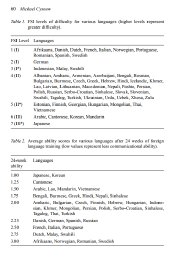
They're about the same.
Since I only ever read and am garbage at writing I was looking for some basic videos on writing kana and I found this channel. It's pretty helpful since she covers how pen pressure applies to some of the strokes which I haven't seen anywhere else.
How can I finally learn how to read Kanji ? I can finally read Katakana and Hiragana but then there's the Kanji. I badly want to finally be able to play VN's and jp games that are not translated. Please help an apprentice wizard.
So of all the languages that matter, Japanese is the most difficult to learn by far. Welp… at least it'll feel more exclusive once you do learn it. I hope.
I'be been fucking busy with school these days so it's been months since I studied japanese but…
Learning Kanji is not that hard,but I think that instead of saying "learning Kanji" you should focus on "Learning words with kanji on them".
For example instead of studying over and over that 食 means "food" and 物 means "thing" instead learn words like 食べる that means eating and 飲み物 that means beverage,disregard the pronuntiation and meaning of individual kanji and focus on learning words since kanji words are actually compound words of kanji+kana.
For example when you learned the word "butterfly" you never analyzed what "butter" and "fly" meant,you just learned that butterfly is a winged,small animal,disregarding the actual words that make the compound word (and their meaning,but as in english eventually you will learn the single individual components of the compond words).
That's my recommendation,I was damn good at learning kanji words,often learning like 400 a day with anki,too bad that I had a fucking hard time with grammar past the first chapters of Tae Kim,and I'm too busy now to continue…well maybe some time later.
File: 1546326878868-0.gif (73.45 KB, 150x146, 75:73, 1528521886624.gif) ImgOps iqdb

File: 1546326878868-1.jpg (9.76 KB, 259x194, 259:194, still.jpg) ImgOps iqdb
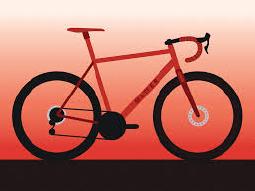
[Last 50 Posts]